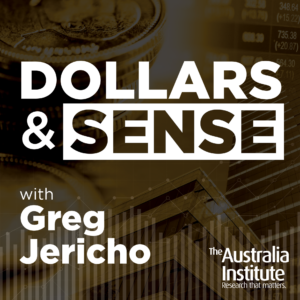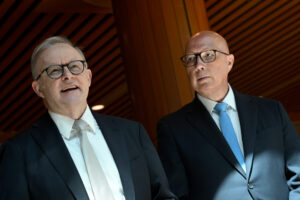Budget one-upmanship in Australia has moved beyond the balanced-budget obsession of the 1990s to the new aim of producing an ongoing surplus, the bigger the better, under which it is taken for granted that everyone will be better off. Despite the recent natural disasters offering good reasons for the Gillard Government to reassess its commitment to returning the budget to surplus in 2012-13, the Government has ploughed on, instead deciding that it would prefer to trim the budget rather than face up to a posturing Opposition. Indeed the finance minister, Senator Penny Wong, has defended the need for budget cuts by arguing that “spending today is locking in a tax burden tomorrow”.
Related documents
Between the Lines Newsletter
The biggest stories and the best analysis from the team at the Australia Institute, delivered to your inbox every fortnight.
You might also like
Australia’s surplus obsession (and why it needs to end)
The Government is being grilled by the media about how it will pay for its changed to Medicare – but why are journalists not asking the same questions of Australia’s expensive and unfair tax concessions?
The ANU’s hidden $90m budget surplus
New analysis by The Australia Institute reveals there is no financial crisis at the Australian National University.
5 ways and 63 billion reasons to improve Australia’s tax system
With a federal election just around the corner, new analysis from The Australia Institute reveals 63 billion reasons why our next Parliament should improve the nation’s tax system.



